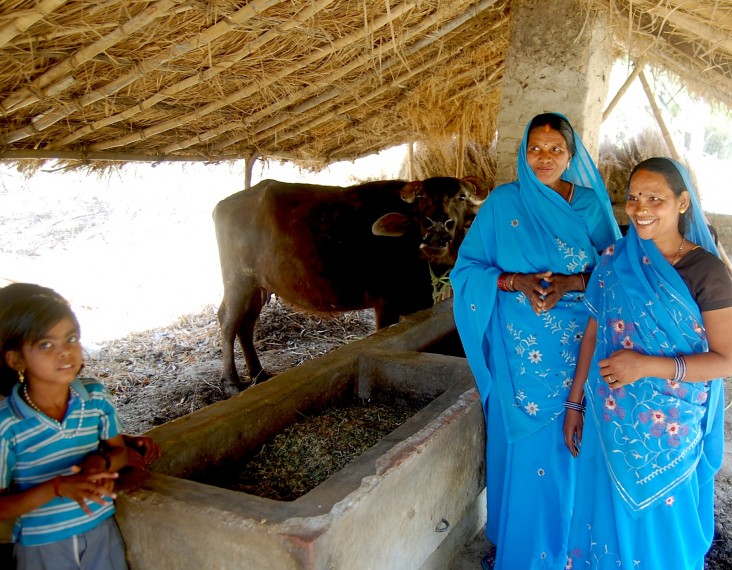India
- History
- Our Work
- Transforming Development Through Innovation & Partnership
- U.S.-India Triangular Cooperation
- Partnership for Energy Access and Security
- Partnership for Sustainable Forests in India
- Partnerships for Health
- Partnership for Education
- Partnership for Water Sanitation and Hygiene (WASH)
- Partnership for Food Security
- Partnership for Gender Equality
- Investing in Afghanistan
- Foreign Assistance Data
- Newsroom
- Newsletters and Fact Sheets
- Speeches
- Resources For Implementing Partners (RFIP)
- Careers
- Partnership Opportunities
- Success Stories
Speeches Shim

Over recent decades, multiple epidemic events have underscored how highly vulnerable we are to viral threats. Our world is globally connected—an emerging threat in one part of the world is a threat to everyone everywhere.
The Global Health Security Agenda (GHSA), launched in February 2014, is a growing partnership of more than 50 nations, international organizations, and non-governmental stakeholders. The GHSA aims to build countries’ capacity to create a world safe and secure from infectious disease threats and to elevate global health security as a national and global priority. It pursues a multilateral and multi-sectoral approach to strengthen global capacity and countries’ capacity to prevent, detect, and respond to human and animal infectious diseases threats, whether occurring naturally or spread accidentally or deliberately.
USAID/INDIA PROGRAMS
USAID collaborates with partners in India to stop disease outbreaks by closing gaps in the early detection of threats. Through a strategic response focused on the connections between animal and human health, USAID is strengthening India’s capacity to prevent and reduce outbreaks, detect threats early and respond with a rapid, coordinated effort to save lives. USAID also partners with the Centers for Disease Control and Prevention (CDC), United Nations Food and Agriculture Organization (FAO) and the World Health Organization (WHO) to fight anti-microbial resistance and to promote the One Health Initiative in India to strenghthen and operationalize the intersectoral collaboration between the human health, animal health, and food sectors.
- DETECTING EMERGING PANDEMIC THREATS: The USAID Emerging Pandemic Threats program (PREDICT) aims to strengthen global capacity for detection and discovery of zoonotic viruses (viral diseases transmitted between species) with pandemic potential. PREDICT uses a One Health approach to conduct targeted surveillance on key wildlife and livestock species, as well as on people who have contact with these animals. In collaboration with GHSA, state and national partners, and national and regional testing laboratories, PREDICT works to characterize the diversity of unknown viruses in nature and enhance India’s ability to detect and respond to new and emerging viral zoonoses. In India, PREDICT has facilitated laboratory development and training and conducted field site surveys to identify priority high-risk areas in border regions. PREDICT also regularly engages with stakeholders in the Government of India, including the Ministries of Agriculture; Environment, Forest and Climate Change; and Health and Family Welfare. USAID focuses its efforts on establishing field teams, conducting training with local partners and conducting concurrent targeted sampling of priority animal species. These activities are implemented in partnership with local wildlife, livestock, and human health authorities.
- MITIGATING THE THREAT OF ANTI-MICROBIAL RESISTANCE: USAID supports the FAO in implementing the Global Action Plan on Antimicrobial Resistance (AMR). FAO is currently engaging with the Government of India to help strengthen capacity in the livestock and fisheries sectors to address issues related to AMR and emerging infectious diseases. Additionally, USAID’s support aims to build national and state- level capacity for surveillance and monitoring of AMR and to strengthen governance related to AMR in food and agriculture. USAID promotes intersectoral collaboration for a comprehensive response to the growing problem of AMR in India. USAID supported the Government of India to develop a National Action Plan (NAP) on AMR with reference to livestock and aquaculture. India’s NAP is now ready and has been endorsed by a high-level Government of India intersectoral coordination committee. USAID will support the NAP by facilitating joint trainings to improve AMR diagnostics and national and regional workshops on developing state-level action plans to combat AMR in animals. USAID is also partnering with WHO to strengthen and harmonize AMR surveillance in human health, strengthen national laboratory capacity, and support an agreement to facilitate AMR data collection and analysis.
- STRENTHENING THE ONE HEALTH COLLABORATION IN INDIA: USAID/India supports the WHO to work closely with the FAO and the World Organisation for Animal Health (OIE) to promote multi-sectoral responses to food safety hazards, risks from zoonoses, and other emerging threats to the human-animal-ecosystem interface and to provide guidance on how to reduce these risks. The FAO-OIE-WHO tripartite is operational at the global level and regional levels through the One Health Initiative, which aims to address health threats at the interface between humans, animals, food, and the environment and to reduce health risks through a collaborative, intersectoral, multidisciplinary approach.

Comment
Make a general inquiry or suggest an improvement.